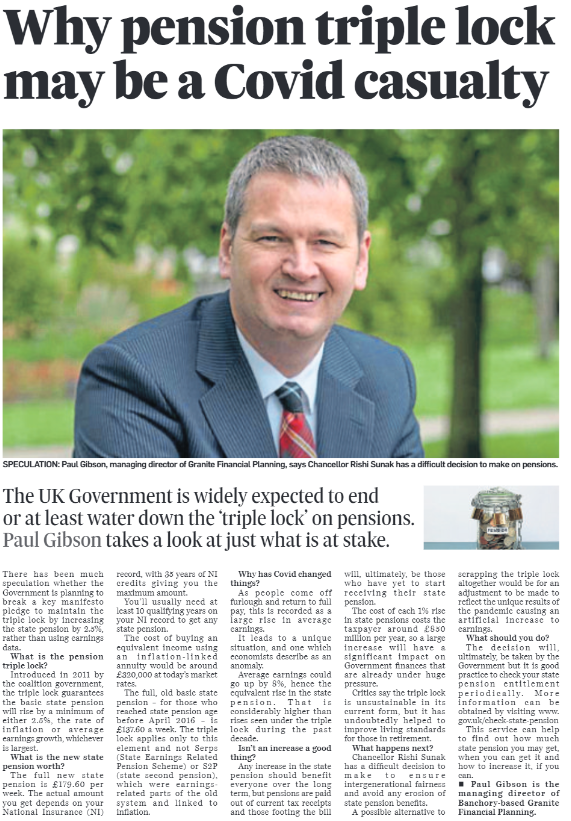There has been much speculation whether the government is planning to break a key manifesto pledge to maintain the triple lock by increasing the state pension by 2.5% rather than using earnings data.
What is the pension triple lock?
Introduced in 2011 by the coalition government, the triple lock guarantees that the basic state pension will rise by a minimum of either 2.5%, the rate of inflation or average earnings growth, whichever is largest.
What is the new state pension worth?
The full new State Pension is £179.60 per week. The actual amount you get depends on your National Insurance record and 35 years NI credits will provide the maximum amount.
You’ll usually need at least 10 qualifying years on your National Insurance record to get any State Pension.
The cost of buying an equivalent income using an inflation-linked annuity would be around £320,000 at today’s market rates.
The full, old basic state pension (for those who reached state pension age before April 2016) is £137.60 a week. The triple lock only applies to this element and not SERPS and S2P which were earnings related parts of the old system which are linked to inflation.
Why has Covid changed things?
As people come off furlough and return to full pay, this is recorded as a large rise in average earnings.
This leads to a unique situation, and one which economists describe as an anomaly.
Average earnings could go up by 8%, hence the equivalent rise in the state pension.
That is considerably higher than rises seen under the triple lock in the last decade.
Isn’t an increase a good thing?
Any increase in the state pension should benefit everyone over the long term but pensions are paid out of current tax receipts and those footing the bill will ultimately be those who have yet to start receiving their state pension.
The cost of each 1% rise in state pensions costs the taxpayer around £850 million per year so a large increase will have a significant impact on government finances which are already under huge pressure.
Critics say the triple lock is unsustainable in its current form, but it has undoubtedly helped to improve living standards for those in retirement.
What happens next?
The Chancellor Rishi Sunak has a difficult decision to make to ensure intergenerational fairness and to avoid any erosion of state pension benefits.
A possible alternative to scrapping the triple lock altogether would be for an adjustment to be made to reflect the unique results of the pandemic causing an artificial increase to earnings.
What should you do?
The decision will ultimately be taken by government, but it is good practice to check your state pension entitlement periodically. More information can be obtained by vising www.gov.uk/check-state-pension.
This service can help to find out: how much State Pension you could get, when you can get and how to increase it, if you can.
Paul Gibson is managing director of Banchory based Granite Financial Planning.





